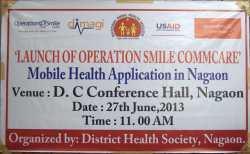First posted on Kent Bottles Private Views on 7/30/2012
First posted on Kent Bottles Private Views on 7/30/2012
Like many in the United States, I was surprised when the National Health Service (NHS) was honored during the Opening Ceremonies of the London Olympic Games. The media guide said, “The NHS is the institution which more than any other unites our nation. It was founded after World War II on Aneurin Bevan’s famous principle, ‘No society can legitimately call itself civilised if a sick person is denied medical aid because of lack of means.’” (http://capsules.kaiserhealthnews.org/index.php/2012/07/u-k-national-health-service-gets-gold-medal-mention-at-olympics/)
Should the Bevan principle make Americans think about what makes a society civilized? Does the American health care delivery system unite our nation? I could not help thinking back to the Republican Presidential Debate where the audience and Ron Paul seemed to be saying that those without health insurance should be left to die. (http://www.youtube.com/watch?v=8T9fk7NpgIU) (http://www.thedoctorweighsin.com/gop-to-uninsured-feel-free-to-drop-dead/) Health care in the United States divides our country into those who believe health care is a human right and those who think it is not. Paul Starr summarizes this tension by stating:
“Americans are still at odds over the most basic question about health care: whether it is a requirement for a free life that the community has an obligation to provide or a good that needs to be earned (and if you can’t earn it, too bad for you).” (Remedy and Reaction: The Peculiar American Struggle Over Health Care Reform, New Haven: Yale University Press, 2011)
Starr traces our dilemma back to the establishment of Medicare as an earned right even though seniors have never paid enough in payroll taxes to cover their insurance costs and Medicaid as an unearned benefit that lacks a moral claim on the community. This history has created a “protected public” who believe they have earned their medical coverage, and they are largely unwilling to subsidize coverage for the less fortunate. By creating separate health insurance financing for the elderly, the United States created a political problem that has caused partisan bickering. It is noteworthy that the Supreme Court decision upholding most of the Patient Protection and Affordable Care Act created a way for governors to elect not to participate in the expansion of the “unearned” benefit of Medicaid.
Although Senate Minority Leader Mitch McConnell yesterday labeled the American health care delivery system “the finest in the world,” most Americans recognize the status quo as unsustainable, expensive, and unsafe. Otis Brawley, MD, chief medical officer at the American Cancer Society, has a different take than McConnell:
“Our medical system fails to provide care when care is needed, and fails to stop expensive, often unnecessary and frequently harmful interventions, even in situations when science proves those interventions are the wrong thing to do.” (How We Do Harm: A Doctor Breaks Ranks About Being Sick in America, New York: St. Martin’s Press, 2012)
Michael L. Millenson reviews the depressing statistics about preventable errors causing death in the United States in an article titled “The Toll of Preventable Errors: How Many Dead Patients?” According to Millenson, the best estimate comes from the Agency for Healthcare Research and Quality; 90,000 hospital patients die each year from preventable, treatment-caused injuries. Millenson also cites a 2010 study of hospital error-reduction programs that concluded “harm remain common, with little evidence of widespread improvements.” (http://www.thedoctorweighsin.com/the-toll-of-preventable-errors-how-many-dead-patients/)
A July 20, 2012 article titled “Why Can’t Medicine Seem to Fix Simple Mistakes?” provides an overview of the ongoing patient safety issue in American medicine.
“Time and again reporters have uncovered unfathomable lapses at medical facilities, often resulting in patient injuries and death. Time and again, hospital officials have put in place solutions that seem ridiculously obvious. And, inconceivably, the fixes are frequently ignored or ineffective.” (http://www.propublica.org/article/why-cant-medicine-seem-to-fix-simple-mistakes)
The article describes five wrong site surgeries at Rhode Island Hospital, nurses at Martin Luther King Jr./Drew Medical Center ignoring monitors in six cases where patients died, and the recent death of a 12-year boy from sepsis where important laboratory results were not reported by NYU’s Langone Medical Center. The article states:
“That’s what’s so difficult to understand about medical mistakes. It seems inconceivable that nurses and doctors would reuse a syringe on multiple patients or that they would turn down alarms on cardiac monitors after patients at their hospital had died as a result.” (http://www.propublica.org/article/why-cant-medicine-seem-to-fix-simple-mistakes)
In Part III of this blog we will explore why human doctors and nurses do “inconceivable” things.






